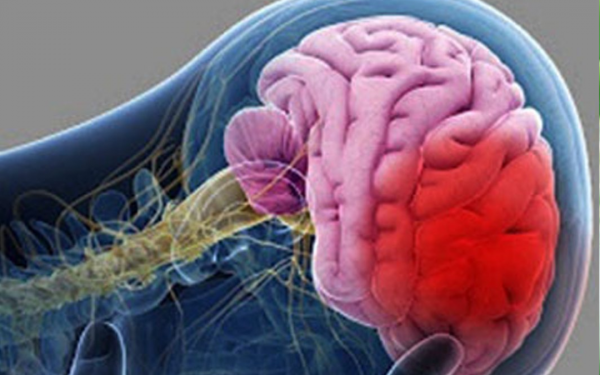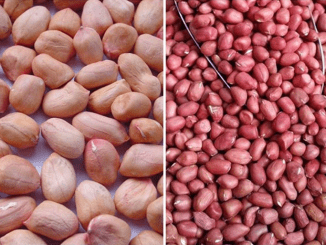Mornings set the tone for the rest of your day, but not all morning habits are as healthy as they seem. Some common practices that many people engage in can quietly increase their risk of stroke without them even realizing it. Considering that strokes are one of the leading causes of disability and death worldwide, it’s crucial to identify and avoid these potentially harmful habits. While it might seem like a stretch to connect your morning routine with such a serious health risk, the truth is that small, everyday choices can add up over time. Here are four morning habits that could increase your stroke risk, and simple tips on how to replace them with healthier alternatives.
Skipping Breakfast: A Dangerous Start to the Day

Breakfast is often called the most important meal of the day—and for good reason. When you skip breakfast, your body enters a prolonged fasting state, which can lead to increased blood pressure and elevated cholesterol levels over time. Both of these are significant risk factors for stroke. Studies have shown that people who regularly skip breakfast are more likely to develop cardiovascular issues, including hardening of the arteries. This makes it harder for blood to flow to the brain, increasing the risk of a stroke. Plus, skipping breakfast often leads to overeating later in the day, which can contribute to weight gain and further strain your heart and blood vessels.
Start your day with a nutritious breakfast that includes whole grains, lean proteins, and healthy fats. Think oatmeal with berries and nuts, a smoothie packed with greens and Greek yogurt, or whole-grain toast with avocado. A balanced breakfast can stabilize your blood sugar, support your metabolism, and lower your stroke risk.
Waking Up and Immediately Rushing Into Action
If your alarm rings and you’re instantly on the go—grabbing your phone, jumping out of bed, and diving into your to-do list—you could be putting unnecessary stress on your body. Sudden movements and stress in the morning can cause a spike in blood pressure, which is a leading contributor to stroke. When you transition too quickly from a state of rest to high activity, your heart rate and blood pressure can rise rapidly. This abrupt change can increase the risk of blood vessel rupture or clot formation, both of which can trigger a stroke.
Give yourself time to wake up gradually. Spend a few minutes stretching, taking deep breaths, or meditating to ease into the day. Even just sitting on the edge of your bed and allowing your body to adjust can make a big difference. Starting the day calmly helps regulate your blood pressure and sets a healthier tone for the hours ahead.
Consuming Too Much Caffeine First Thing
There’s nothing wrong with enjoying a morning cup of coffee, but overloading on caffeine right after waking up can have some unintended consequences. Caffeine stimulates the nervous system, increasing heart rate and potentially raising blood pressure temporarily. For people with underlying hypertension or heart issues, this spike can elevate the risk of a stroke. Additionally, drinking coffee on an empty stomach can lead to dehydration, as caffeine is a diuretic. Dehydration thickens your blood, which can increase the likelihood of clot formation—a primary cause of strokes.
Limit your morning caffeine intake to one moderate-sized cup and pair it with a healthy breakfast. To further reduce risks, consider drinking a glass of water before your coffee to stay hydrated. If you’re sensitive to caffeine, you might opt for decaffeinated options or herbal teas to ease your system into the day more gently.
Ignoring Morning Hydration
Dehydration is a hidden culprit that can increase your risk of stroke, especially in the morning when your body is naturally low on fluids after a night’s rest. Many people forget to hydrate first thing in the morning, reaching for coffee or breakfast without replenishing their water levels. When you’re dehydrated, your blood becomes thicker, making it harder for it to flow smoothly through your arteries. This increases the likelihood of clots forming, which can block blood flow to the brain and result in a stroke. Chronic dehydration also contributes to higher blood pressure, compounding the risk further.
Start your day by drinking a glass of water before consuming anything else. You can make this part of your routine by keeping a water bottle or glass by your bedside table. If you find plain water unappealing, try adding a slice of lemon, cucumber, or mint for a refreshing twist.
Understanding the Link Between Morning Habits and Stroke Risk
The morning is a critical time for your body, and the choices you make during those first few hours can have long-term effects on your cardiovascular health. Strokes occur when blood flow to the brain is interrupted, either due to a clot (ischemic stroke) or a ruptured blood vessel (hemorrhagic stroke). Factors like high blood pressure, dehydration, poor diet, and stress significantly increase the risk. By addressing these morning habits, you’re not only reducing your stroke risk but also promoting overall well-being. Small adjustments, such as staying hydrated, eating breakfast, and starting the day calmly, can have a big impact on your health.

How to Build a Stroke-Preventing Morning Routine
Now that you know what to avoid, here’s how to create a healthier morning routine that protects your brain and heart:
Wake Up Gradually: Start with light stretching or a moment of mindfulness to transition into the day gently.
Hydrate First: Drink a full glass of water before reaching for coffee or food.
Eat a Balanced Breakfast: Include foods rich in fiber, protein, and healthy fats to support heart health and blood flow.
Limit Caffeine: Stick to one cup of coffee or tea, and avoid adding excessive sugar or creamers.
Conclusion: Take Control of Your Health, One Morning at a Time
Your morning habits play a bigger role in your long-term health than you might think. Skipping breakfast, rushing into action, overloading on caffeine, or neglecting hydration might seem harmless, but over time, they can increase your risk of stroke. The good news? These habits are easy to change with a bit of awareness and effort. By starting your day with mindful choices, you’re not just lowering your stroke risk—you’re taking proactive steps toward a healthier and more balanced lifestyle. So tomorrow morning, slow down, hydrate, nourish your body, and ease into the day. Your future self will thank you.


